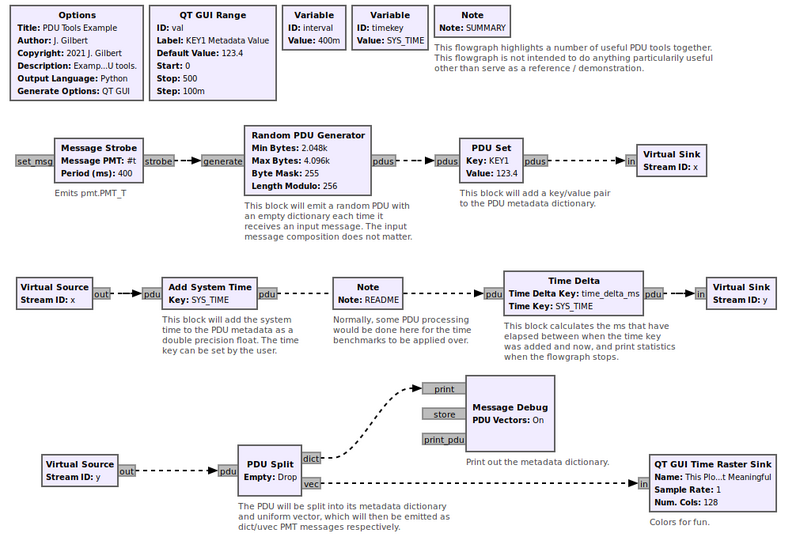Random PDU Generator: Difference between revisions
Jump to navigation
Jump to search
(changed maint-3.9/gr-blocks to main/gr-pdu) |
(add note for 3.10) |
||
| Line 1: | Line 1: | ||
[[Category:Block Docs]] | [[Category:Block Docs]] | ||
Sends a random PDU once at startup and then every time it receives a message. | Sends a random PDU once at startup and then every time it receives a message. | ||
<b>Note for 3.10</b> This block has been moved from gr-blocks to gr-pdu, which causes a name change of the id. See [[Porting_Existing_Flowgraphs_to_a_Newer_Version#PDU_blocks_moved_from_gr-blocks_to_gr-pdu]] for details. | |||
== Parameters == | == Parameters == | ||
Latest revision as of 14:40, 27 January 2022
Sends a random PDU once at startup and then every time it receives a message.
Note for 3.10 This block has been moved from gr-blocks to gr-pdu, which causes a name change of the id. See Porting_Existing_Flowgraphs_to_a_Newer_Version#PDU_blocks_moved_from_gr-blocks_to_gr-pdu for details.
Parameters
- Min Bytes
- Minimum number of bytes to output
- Max Bytes
- Maximum number of bytes to output.
- Byte mask
- The output bytes are the result of an AND operation between the generated numbers and this mask.
- Length Modulo
- Makes the length of the output PDU to be a multiple of the specified number. The length also cannot be lower than that number.
Example Flowgraph
This flowgraph can be found at [1]
Source Files
- C++ files
- random_pdu_impl.cc
- Header files
- random_pdu_impl.h
- Public header files
- random_pdu.h
- Block definition
- pdu_random_pdu.block.yml
